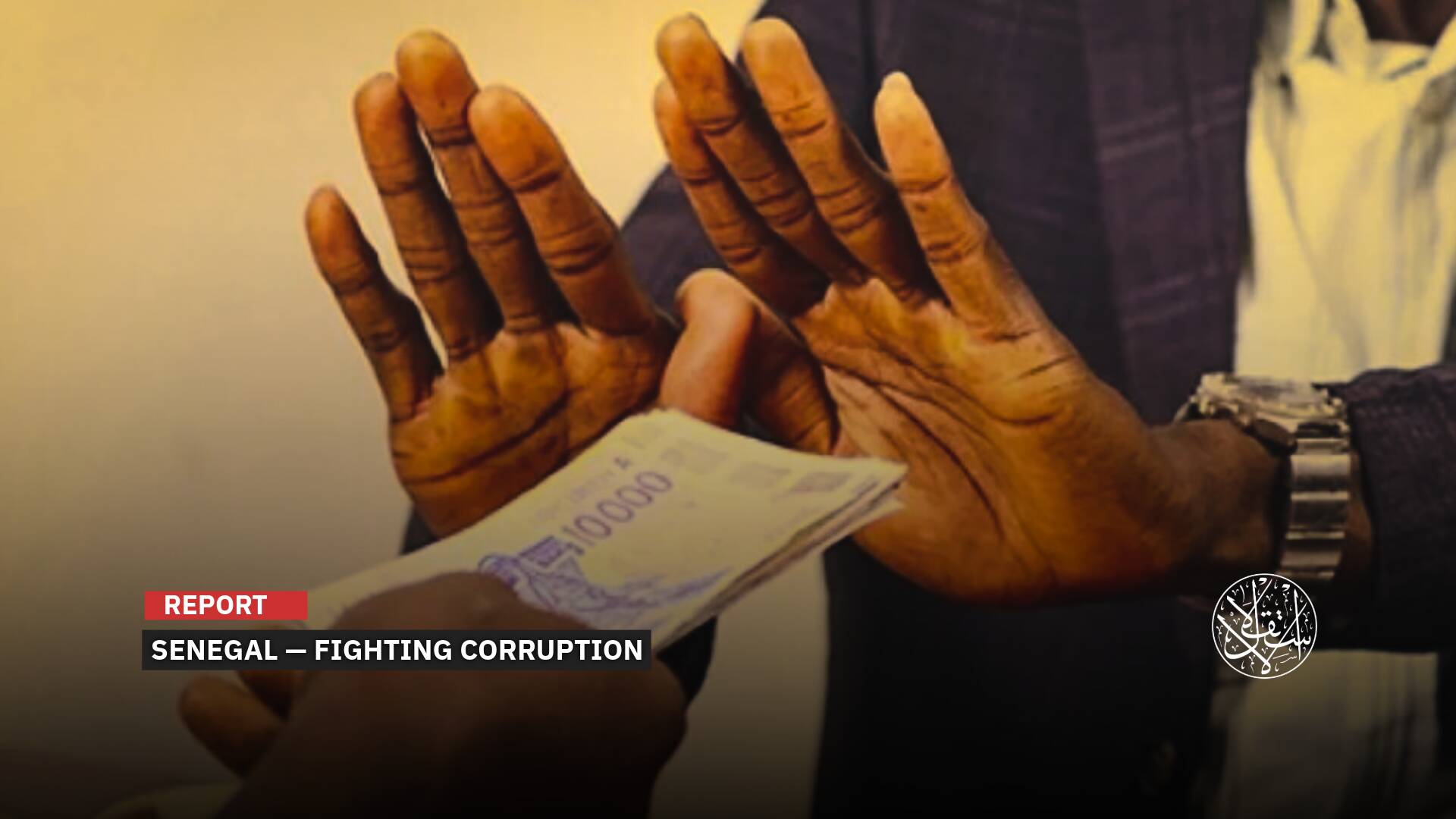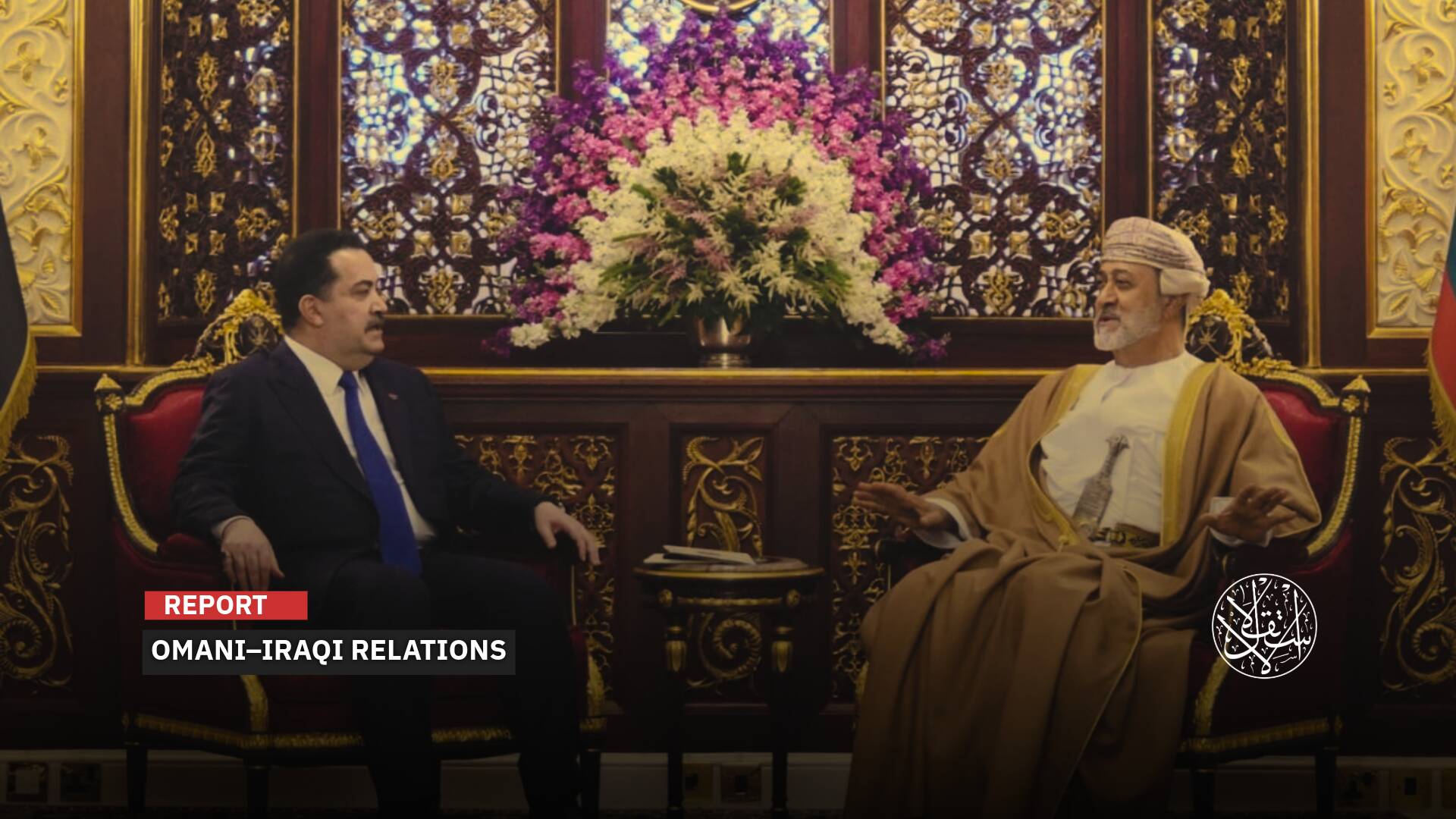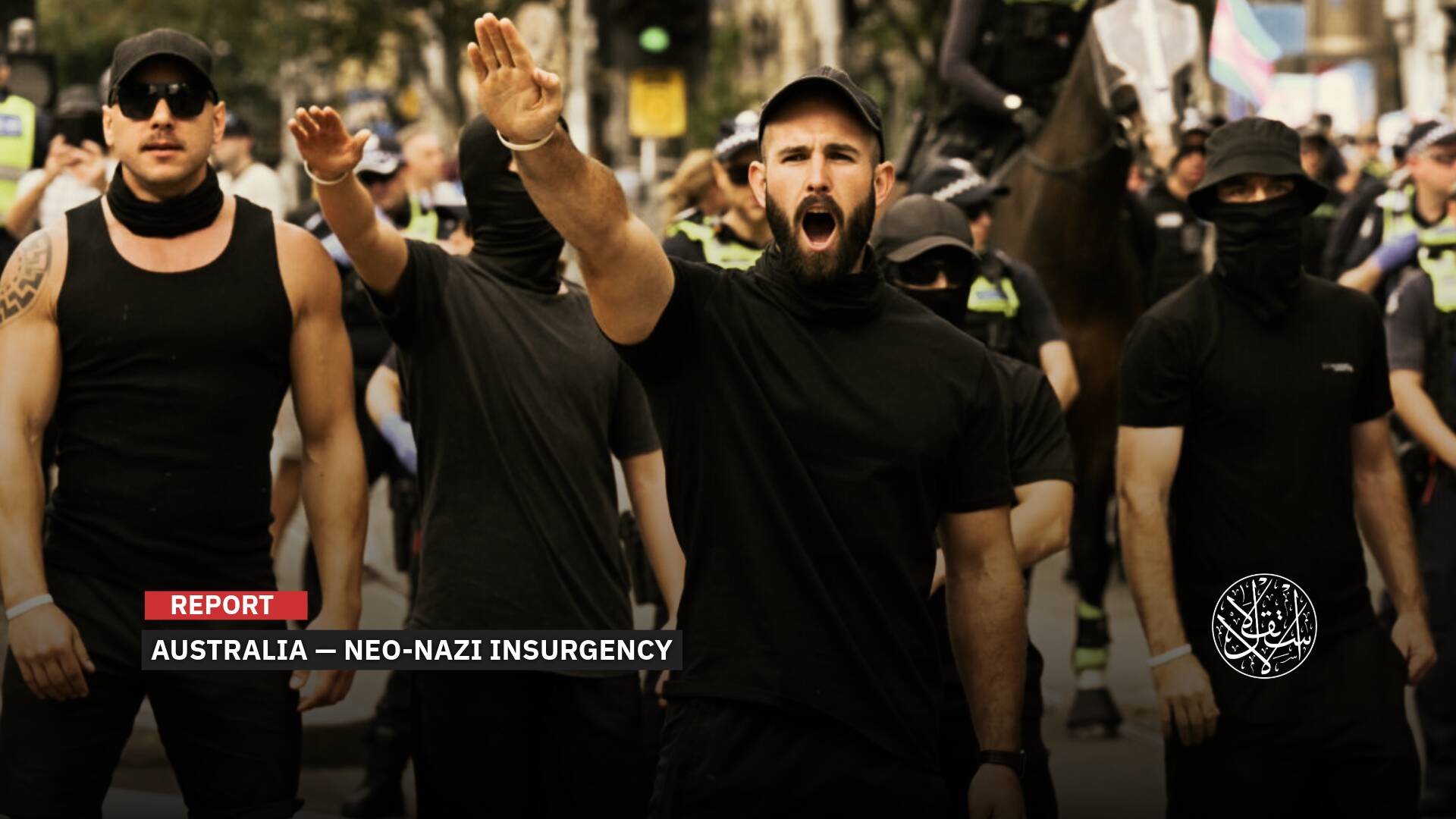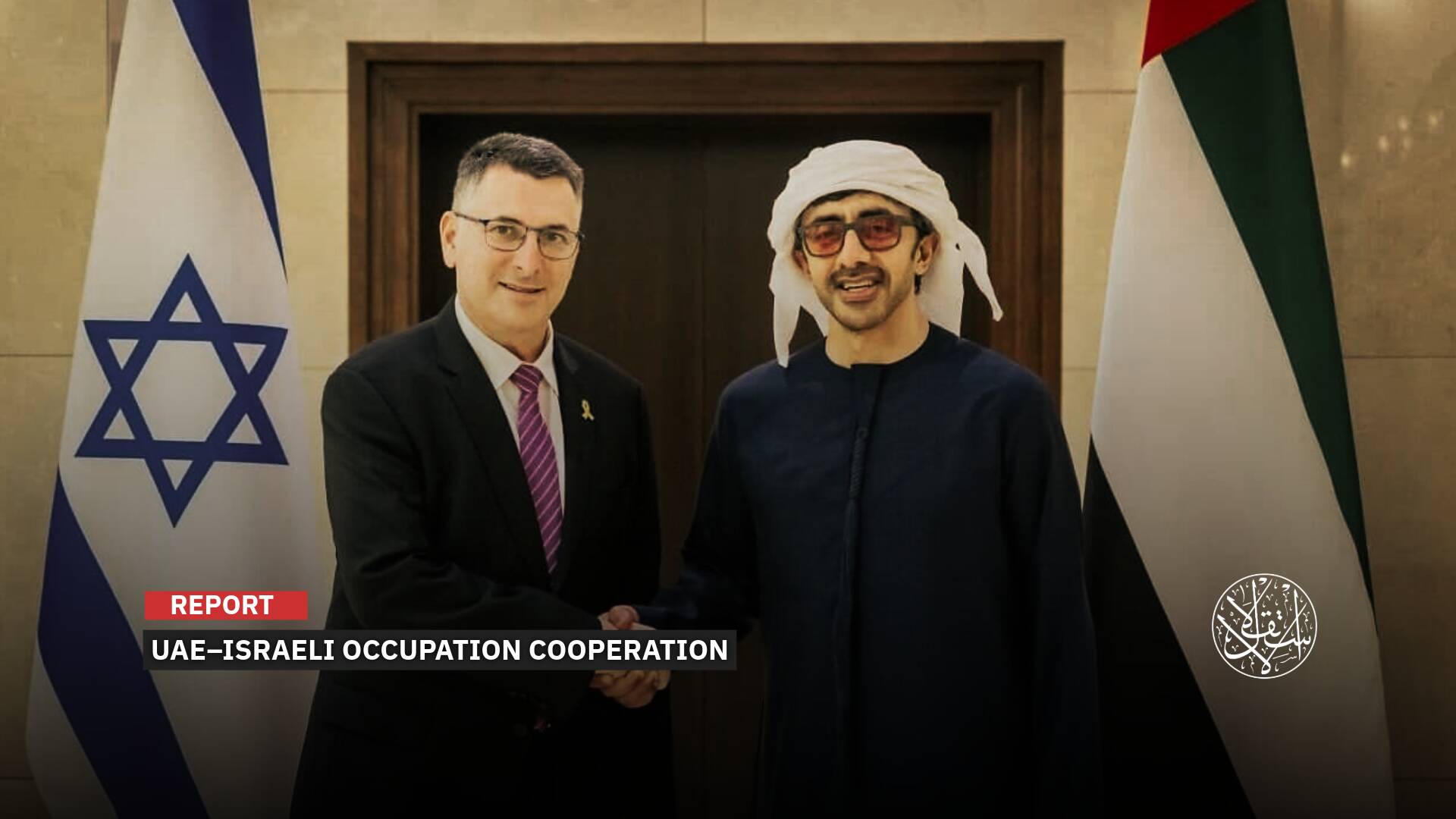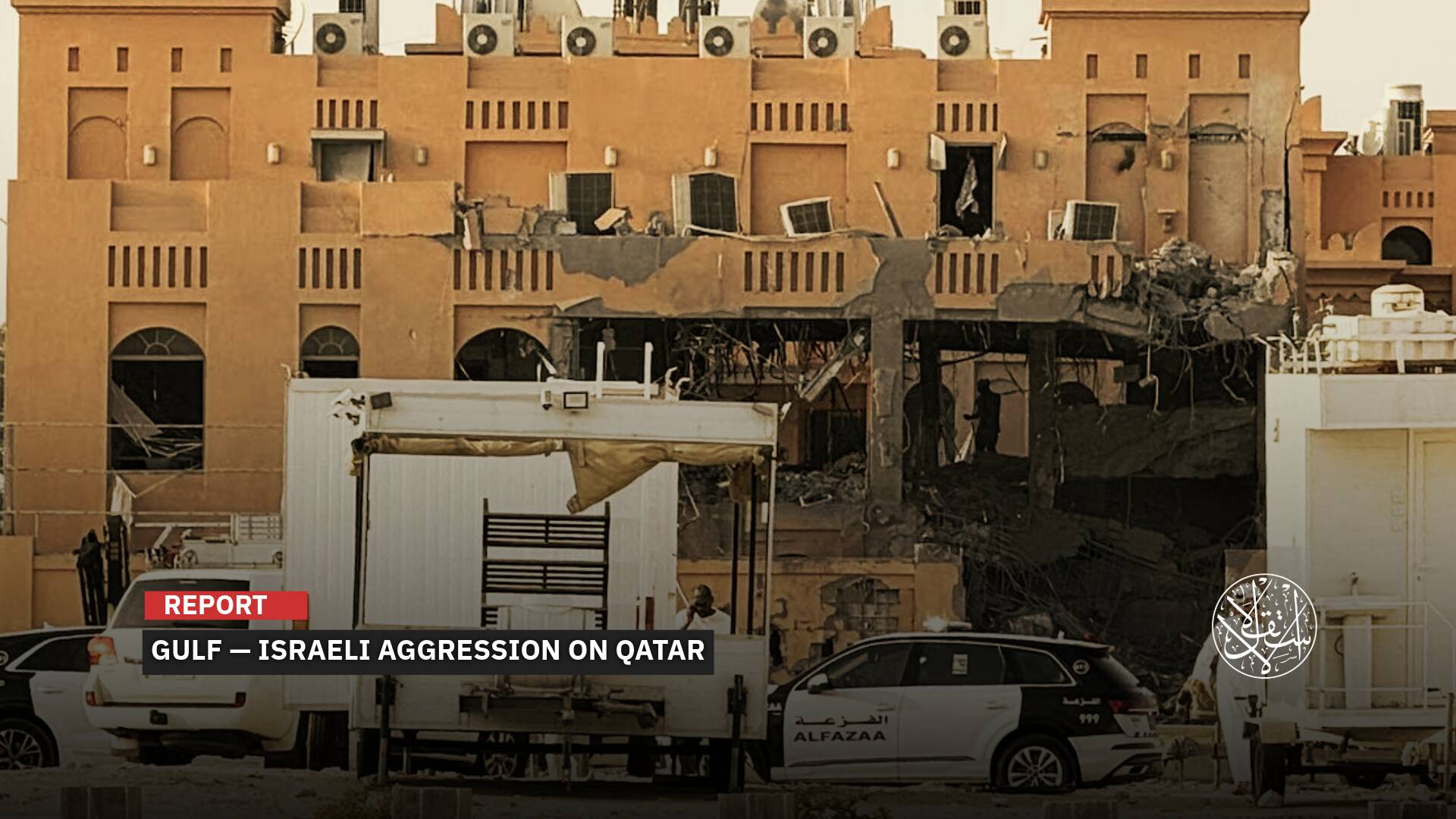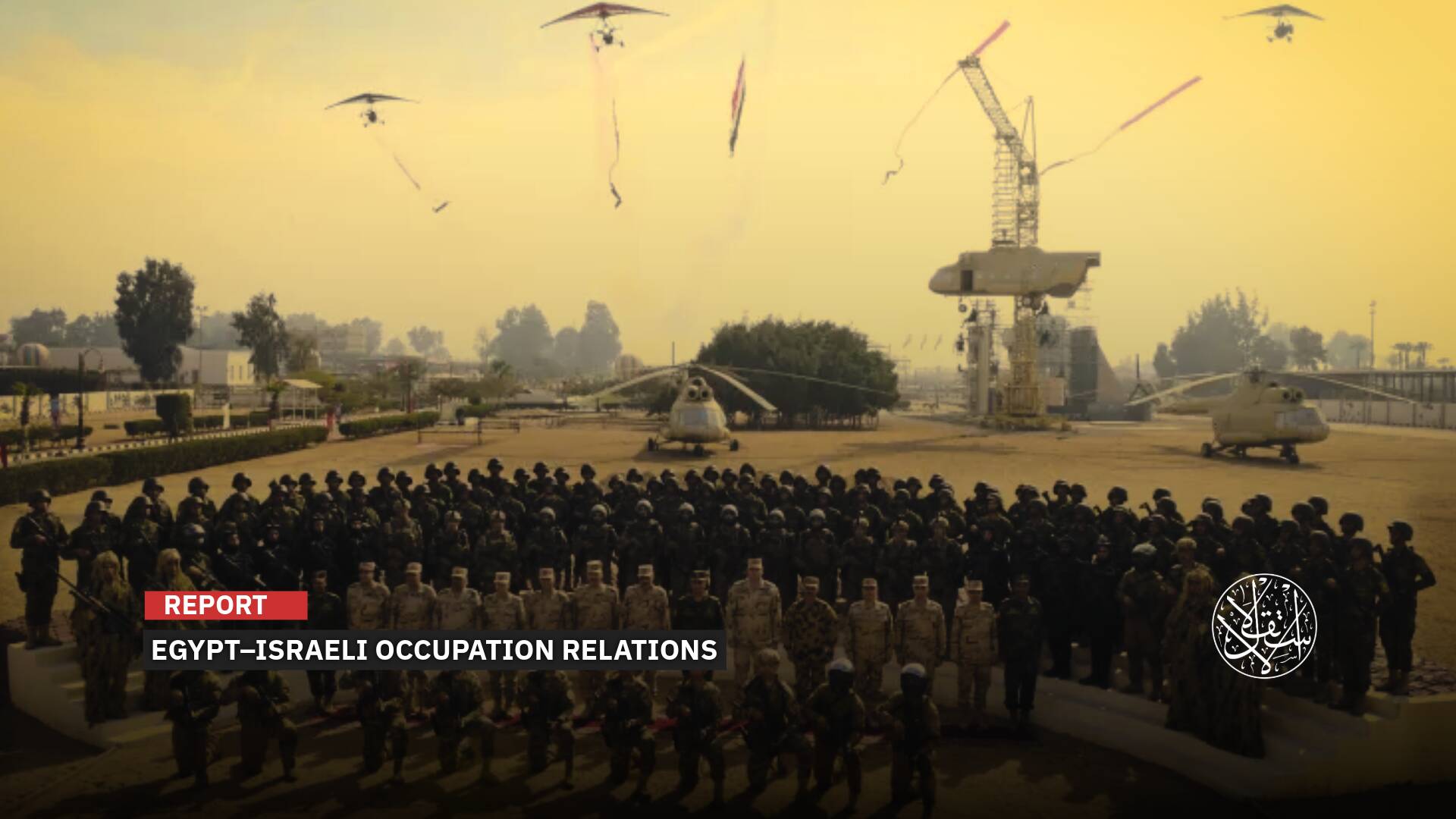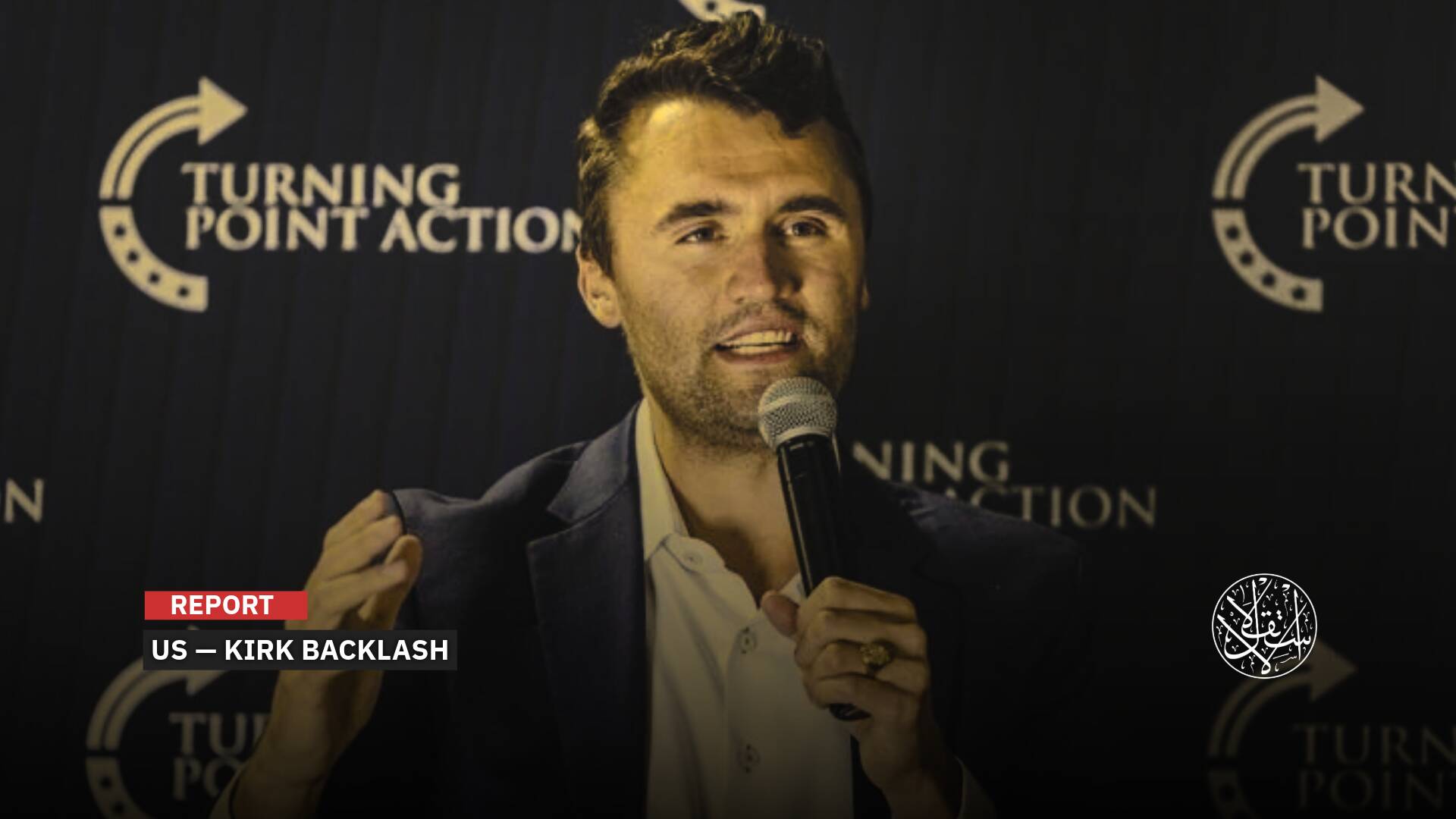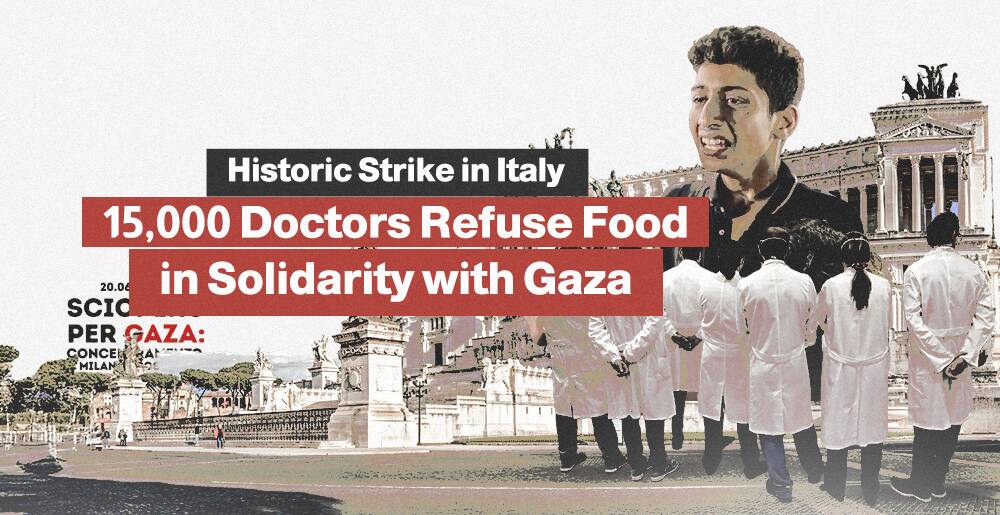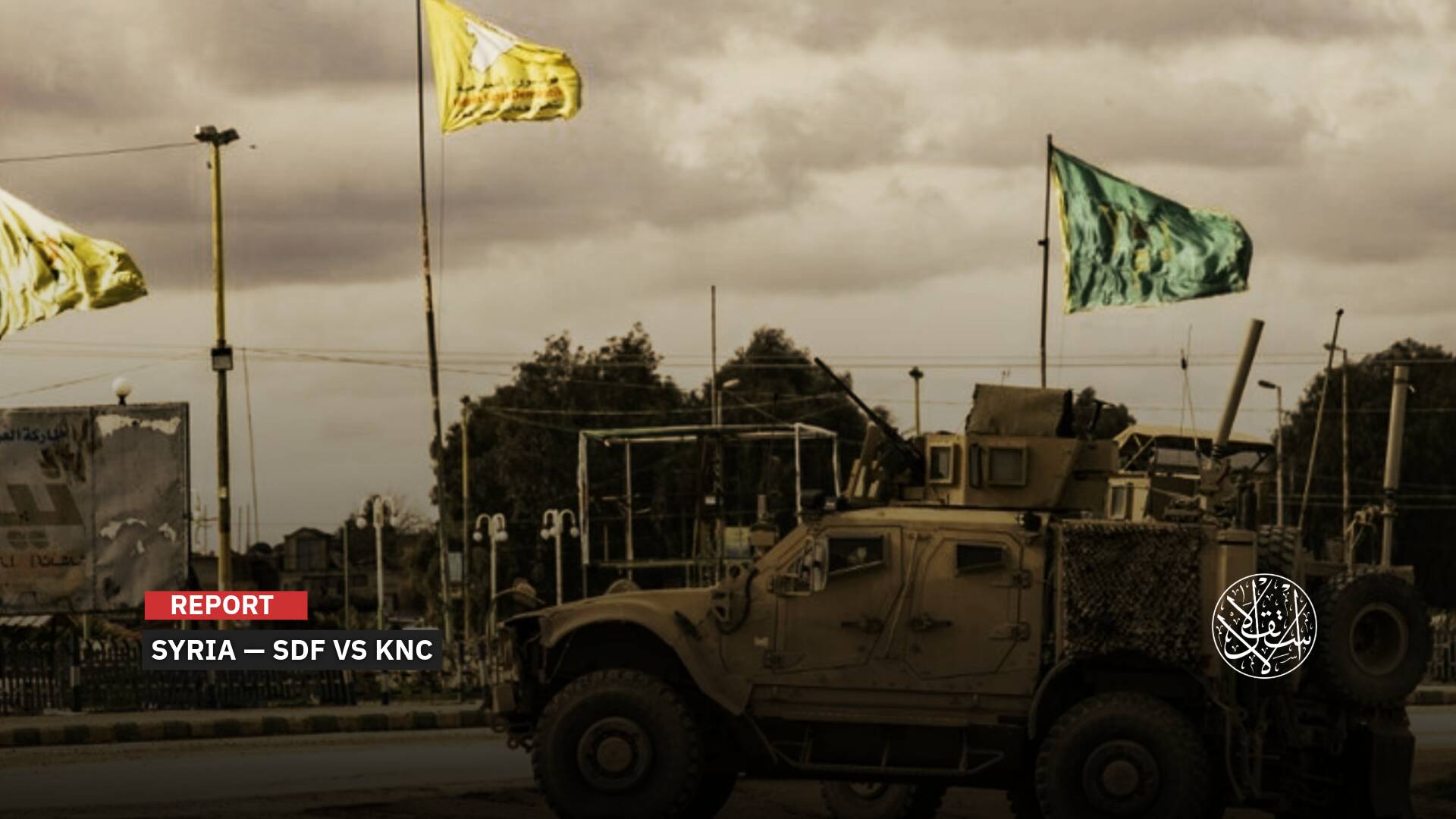Strategic Change or Power Struggle: Why Russia Changed Its Military Commander in Ukraine Again?

Just three months after he was appointed commander of Russia’s military operation in Ukraine, the Russian Ministry of Defense recently replaced General Sergei Surovikin with General Valery Gerasimov, who had served as Russia’s chief of the General Staff for more than a decade.
It is noteworthy that Gen. Gerasimov was among the architects of the Russian invasion of Ukraine on February 24, 2022, and he remained in office despite the bitter military setbacks on the ground and the growing indications of discontent among the elites regarding the conduct of the war.
This decision, announced by Moscow, comes in a rare incident after a series of major failures of the Russian army in Ukraine, and it is currently engaged in fierce battles on the eastern Ukrainian fronts amid Russia’s efforts to change Gen. Surovikin’s defense strategy that does not meet the goals of its war.
According to what was revealed by Politico magazine, the recent appointments come after Russian President Vladimir Putin chose to deal with the internal divisions in power that the army suffers from by increasing Gen. Gerasimov’s powers and lowering Gen. Surovikin’s rank.
However, critics said the replacement would not address what ails the Russian army, amid signs of strife and discord among the Kremlin’s top officials, according to the New York Times newspaper.
Major Reshuffle
On January 11, 2023, the Russian Ministry of Defense announced that Gen. Valery Gerasimov will assume the commander of military operations in Ukraine, with three deputies working under him: Gen. Sergei Surovikin, Gen. Oleg Salyukov, and Col. Gen. Alexei Kim.
The ministry indicated that Gen. Surovikin will remain a direct commander of the military operation in Ukrainian territory, Gen. Salyukov will take care of preparing the ground military forces, and Gen. Kim will take care of preparing military plans.
“The recent changes are necessary because of the broader scope of missions in Ukraine, and the need for closer coordination between the military branches and services of the armed forces,” it added.
The ministry said that the amendment represents an increase in the level of the command of the special military operation, referring in other words to the improvement of joint arms warfare and the integration of infantry, armor, artillery, and air support to achieve mutually supportive and complementary effects, which Russia previously failed to achieve.
However, the Institute for the Study of War (ISW) has read that the latest appointments show the Kremlin is in the midst of a major shift in both the conduct of the war and the role of the Ministry of Defense, describing it as a major reshuffle in the structure of the Russian command for the war in Ukraine, as stated in its report on January 12, 2023.
“Such a modification could precede a major Russian attack in the early months of 2023, as Putin believes Russian forces could accomplish it,” the Institute said.
2/ #Gerasimov’s appointment is likely meant to support an intended decisive Russian military effort in 2023, likely in the form of resumed Russian offensive operations.
— ISW (@TheStudyofWar) January 12, 2023
Conversely, both Western security analysts and pro-war Russian nationalists doubted that the reshuffle would lead to game-changing tactics or restore momentum to Russia’s campaign.
They see the shake-up as largely political and a sign of infighting in the Kremlin, as the Ministry of Defense is trying to reassert its control over the conduct of the war and limit the growing influence of the head of the paramilitary forces, Yevgeny Prigozhin, the leader of Wagner’s mercenaries.
In the same context, the American Politico magazine indicated in its report on January 13, 2023, that “Prigozhin seeks to seize the limelight by claiming that he has achieved breakthroughs through the wave of massive attacks in eastern Ukraine, using so-called punitive battalions, made up largely of former prison inmates, to achieve a rare Russian victory.”
In a sign to the personality politics that seem to be looming larger in the Russian military, Prigozhin is also keen to portray himself as a fighter wearing a helmet and bullet-proof vest with his troops on the front lines, which is part of the longstanding push by the pro-war ultra-nationalist camp led by Prigozhin and Chechen leader Ramzan Kadyrov to restructure the upper echelons of command.
Despite it all, Putin does not seem to be giving them the new arrangement they want but instead is strengthening the hand of the Kremlin’s men, who are often the target of the ultra-nationalists’ harsher denunciations, Politico reported.
It is noteworthy that Russia has changed its war leaders repeatedly with their failure so far to achieve Putin’s goals, starting with the failed efforts to control Kyiv last spring to the humiliating defeats in the fall of the Kharkiv region (northeast) and the city of Kherson (south) of Ukraine.

Military Strategy
After appointing Gen. Surovikin to head the forces three months ago, Russia implemented a clear military shift towards destroying civilian infrastructure in Ukraine, as well as destroying power plants and water facilities.
According to experts, the decision to keep Gen. Surovikin in second place in Gen. Gerasimov’s team calms the ultra-nationalists but hardly answers their calls for a radical change in the war.
It is noteworthy that Gen. Surovikin was appointed in October 2022 at a time when the Russian forces were facing bitter setbacks, which continued under his leadership, including the withdrawal from Kherson, the only regional capital that Moscow had seized since the invasion of Ukraine, as reported by the New York Times in its January 11, 2023 report.
Since then, the eastern Ukrainian front has been witnessing stability in general, with the exception of the city of Bakhmut, in Donetsk, which the Russian army and the Wagner Group have been trying to seize for months, according to the newspaper.
“Faced with these difficulties on the battlefield, Vladimir Putin ordered the call-up of 300,000 reservists and launched a bombing campaign against Ukraine’s energy infrastructure,” the newspaper added.

It is not yet clear whether Gen. Gerasimov, a veteran of Russia’s war in Afghanistan, will be able to achieve this, although he has the experience of a battlefield commander in Ukraine.
In particular, he oversaw Russian forces and pro-Russian rebels in August 2014, overpowering the Ukrainians at Ilovaisk in Donetsk, in which more than a thousand Ukrainian soldiers were killed, and forcing then-Ukrainian President Petro Poroshenko to acquiesce in peace talks.
Gen. Gerasimov is seen as an advocate of hybrid warfare, the author of a doctrine named after him that advocates the combination of military, technological, informational, diplomatic, economic, cultural, and other tactics to achieve strategic goals.
In turn, military analyst Rob Lee, a senior fellow at the Foreign Policy Research Institute, said on Twitter that “the appointment of the new military commander may have come for political reasons.”
“I don’t think this is because Surovikin is viewed as a failure. Possibly because he was becoming very powerful and was likely bypassing his military commanders when talking to Putin, or it could have been a response to Wagner’s increasingly public and influential role in the war,” he wrote.
I don't think this is because Surovikin is viewed as a failure. Certainly possible that this was driven by political reasons. As the unified commander in Ukraine, Surovikin was becoming very powerful and was likely bypassing Shoigu/Gerasimov when talking to Putin.
— Rob Lee (@RALee85) January 11, 2023
As the military analyst Mark Galeotti wrote in a series of tweets, the new appointments may come as a demotion for Gen. Surovikin, and even with all sorts of setbacks, including the latest strike against Russian forces, noting that there is nothing that one new leader can do in three months.
He expected Russia to launch a major military operation in the spring, driven by politics and waiting for Western support for Kyiv to decline, saying: “I don’t think Moscow’s strategy hinges anyway on battlefield victory, it’s more about politics.”
What did Surovikin do wrong? Nothing, really (in context - this is not about his morality...). Yes, there were all kinds of reversals, including the recent Makiivka strike, but there is a limit to what one new commander can do in 3 months 3/
— Mark Galeotti (@MarkGaleotti) January 11, 2023
Power Struggle
Regarding the reasons for changing the military leadership of the Russian operation in Ukraine, political expert Dr. Mahmoud al-Hamza said in a statement to Al-Estiklal that “the most prominent reason is the failure of Gen. Surovikin to achieve a military victory on the Ukrainian front with huge losses in the lives and equipment of his troops.”
“There are also Russian efforts to expand its military operation in Ukraine in light of the new Western military support for Ukraine, such as Leopard tanks from Poland and Germany, as well as Patriot missiles from the United States, and other massive aid,” he added.
In another context, Dr. al-Hamza indicated that “the Russian attack on the city of Soledar has highlighted the existence of internal disputes between some centers of power in the Russian elite, especially with the rebellion leaders—such as: the head of the Wagner Group and the head of Chechnya—portraying this military progress as a special achievement for them.”
In this regard, Politico magazine reported that “last week, for example, Yevgeny Prigozhin claimed that Wagner’s mercenaries overran the entire Ukrainian city of Soledar.
However, the Russian Ministry of Defense felt insulted and hastened to respond to Prigozhin’s statements, saying: “The siege of Soledar was carried out by the air landing forces with the support of the Aerospace Forces.”
In turn, Kadyrov was also disturbed by his role being ignored, so he issued, through one of his commanders, a statement in which he talked about the course of the Battle of Soledar, in an implicit sign that it was also taking place with the involvement of soldiers from Chechnya.
On its part, Ukraine is still responding that the fighting is still going on and that Prigozhin’s tactics are insane because of the huge losses he is willing to accept for negligible strategic gains, Politico reported.
Prigozhin had also criticized the Russian Ministry of Defense, boasting that his combat experience is far better than those who have been in the service of the army for decades, the Washington Post reported on January 11, 2023.
In late December, Wagner fighters published a video clip full of obscene words directed at the Supreme Command of the Russian Army, accusing it of withholding ammunition from them and causing the death of their comrades.
“When you’re sitting in a warm office, it’s hard to hear the problems of the front lines,” Prigozhin responded to the video, in a clear sign to the regular generals, according to the New York Times.

Soledar is located about 10 km northeast of the city of Bakhmut, which the Ukrainians have been defending fiercely for several months in the face of a series of attacks by Russian forces.
The Russian capture of the city is likely to be seen as the biggest gain since August 2022 after a series of setbacks to Ukrainian counterattacks in the east and south, even if it was costly in terms of destroyed materiel, dead and wounded, as reported by NBC on January 11, 2023.
Capturing Bakhmut would disrupt Ukrainian supply lines and open a path for Russian forces to push toward Kramatorsk and Sloviansk, Ukraine’s strongholds, in Donetsk Province.
As the war approaches its first year, all eyes are on who will be superior in this struggle. While Kyiv says it cannot win the battle without obtaining massive support and advanced weapons from its Western allies, Moscow asserts that its operations are proceeding according to plan despite the losses.
Sources
- Putin’s shake-up of Russia’s commanders won’t quell infighting
- Russia Replaces Commander for Ukraine War, as Signs of Dissension Grow
- Russian Offensive Campaign Assessment, January 11, 2023
- Russia claims to take Soledar, a battlefield gain, but swaps war commanders
- Putin replaces commander of Russia’s war in Ukraine after just 3 months


